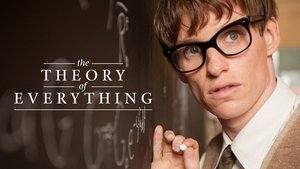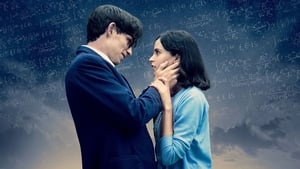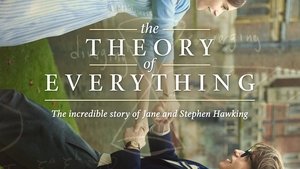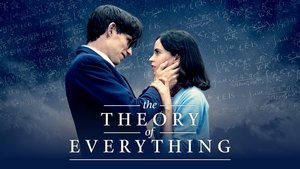Academy Award winning filmmaker James Marsh, best known for his popular documentaries Man on Wire and Project Nim, debuted his new biopic, The Theory of Everything, at the Toronto International Film Festival in early-September. The result was a shake-up in nearly all of the major Oscar races thanks to beloved performances from a pair of young up-and-comers, Les Miserables' Eddie Redmayne and the adorable Felicity Jones. And although I wasn't nearly as enamored with the overall final product as those in Toronto, the fact remains that The Theory of Everything has the staying power of a late-year Best Picture contender.
As a remarkably gifted doctoral student at the University of Cambridge in 1963, a young aspiring physicist named Stephen Hawking (played by Redmayne) discovers that he's suffering from a motor neuron disease (ALS) and is given only two years to live. Deeply depressed and feeling utterly hopeless, only the loyalty and devotion of a recent love interest named Jane Wilde (Jones) can keep Stephen motivated enough to continue his scientific pursuit of understanding the origins of the universe. Yet, many years after the two young lovers marry, Stephen's deteriorating physical abilities and Jane's tireless efforts at caring for their family prove to be the ultimate match for the couple.

Building a flourishing career upon the foundation of documentary filmmaking, it appears that very little changes with James Marsh's approach in The Theory of Everything. The director takes the audience through a realistically shaped journey with both of its lead characters who are brilliantly portrayed by superstars in the making, Eddie Redmayne and Felcity Jones. Redmayne, who was highlighted in my Top Rising Stars write-up back in May, accepts the daunting task of transforming the virtually paralyzed genius, Stephen Hawking, to the big screen, and he does so with remarkable ease. But don't be fooled, The Theory of Everything isn't just Stephen's story. The film also forces the viewer to relive the physicist's escalating physical limitations through the eyes of his wife, Jane. Hence, Felicity Jones' powerful turn as the rock of the Hawking household and a woman who valiantly stares down any obstacle even tends overshadow Redmayne's work by the closing credits. Make no mistake about it, though, both performances are equally deserving of all their praises.

While top notch portrayals clearly highlight this biopic, where the movie fails is in its pacing and lack of depth to Hawking's ideas and achievements in the science community. Rather than exploring the brain inside of this living genius who has soared past unspeakable odds, The Theory of Everything takes the safe systematic approach by following the presumed biopic template. Thankfully, Marsh receives exemplary performances that almost single-handedly support his relationship-driven narrative. While it's true that very few couples can admit to facing life-altering hardships comparable to those that Stephen and Jane had to endure, the couple's complicated marriage and unfathomable circumstances are vastly outstretched and inundated with glossed-over milestones. A more earnest approach would have been to examine the daily grind associated with a loved one suffering from ALS. Instead, The Theory of Everything stumbles along from checkpoint to checkpoint giving it a somewhat artificial feel.
The talent surrounding James Marsh's The Theory of Everything is magnificent, and the film is almost certainly going to stand out as the feature that elevated both Redmayne and Jones' careers to new heights. However, the true mark of a great film is to counterbalance transcending performances with an equally effective story, which doesn't happen here. For people with any knowledge of Hawking's personal life, The Theory of Everything will open very few doors into the unknown of the man at its center. And for someone as groundbreaking and exceptional as Stephen Hawking, that just doesn't feel acceptable.
-
 NameEddie RedmayneCharacterStephen Hawking
NameEddie RedmayneCharacterStephen Hawking -
 NameFelicity JonesCharacterJane Hawking
NameFelicity JonesCharacterJane Hawking -
 NameCharlie CoxCharacterJonathan Hellyer Jones
NameCharlie CoxCharacterJonathan Hellyer Jones -
 NameEmily WatsonCharacterBeryl Wilde
NameEmily WatsonCharacterBeryl Wilde -
 NameSimon McBurneyCharacterFrank Hawking
NameSimon McBurneyCharacterFrank Hawking -
 NameDavid ThewlisCharacterDennis Sciama
NameDavid ThewlisCharacterDennis Sciama -
 NameMaxine PeakeCharacterElaine Mason
NameMaxine PeakeCharacterElaine Mason -
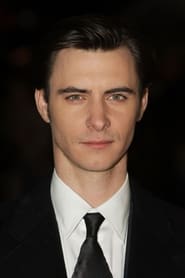 NameHarry LloydCharacterBrian
NameHarry LloydCharacterBrian -
 NameTom PriorCharacterRobert Hawking (Age 17)
NameTom PriorCharacterRobert Hawking (Age 17) -
 NameSophie PerryCharacterLucy Hawking (Age 14)
NameSophie PerryCharacterLucy Hawking (Age 14) -
 NameFinlay Wright-StephensCharacterTimothy Hawking (Age 8)
NameFinlay Wright-StephensCharacterTimothy Hawking (Age 8) -
 NameAlice Orr-EwingCharacterDiana King
NameAlice Orr-EwingCharacterDiana King -
 NameThomas MorrisonCharacterCarter
NameThomas MorrisonCharacterCarter -
 NameMichael MarcusCharacterEllis
NameMichael MarcusCharacterEllis -
 NameGruffudd GlynCharacterRees
NameGruffudd GlynCharacterRees -
 NamePaul LongleyCharacterBarman - Rowing Club
NamePaul LongleyCharacterBarman - Rowing Club -
 NameGuy Oliver-WattsCharacterGeorge Wilde
NameGuy Oliver-WattsCharacterGeorge Wilde -
 NameLucy ChappellCharacterMary Hawking
NameLucy ChappellCharacterMary Hawking -
 NameCharlotte HopeCharacterPhilippa Hawking
NameCharlotte HopeCharacterPhilippa Hawking -
 NameAbigail CruttendenCharacterIsobel Hawking
NameAbigail CruttendenCharacterIsobel Hawking -
 NameNicholas Gerard-MartinCharacterPhysicist #1
NameNicholas Gerard-MartinCharacterPhysicist #1 -
 NameBrett BrownCharacterPhysicist #2
NameBrett BrownCharacterPhysicist #2 -
 NameAnthony SkrimshireCharacterPhysicist #3
NameAnthony SkrimshireCharacterPhysicist #3 -
 NameChristian McKayCharacterRoger Penrose
NameChristian McKayCharacterRoger Penrose -
 NameAdam GodleyCharacterSenior Doctor - Cambridge Hospital
NameAdam GodleyCharacterSenior Doctor - Cambridge Hospital -
 NameNicola SloaneCharacterBedder
NameNicola SloaneCharacterBedder -
 NameLottie HamiltonCharacterRobert Hawking (New Born)
NameLottie HamiltonCharacterRobert Hawking (New Born) -
 NameEnzo CilentiCharacterKip Thorne
NameEnzo CilentiCharacterKip Thorne -
 NameRufus TaylorCharacterRobert Hawking (Age 2)
NameRufus TaylorCharacterRobert Hawking (Age 2) -
 NameDelilah SextonCharacterLucy Hawking (New Born)
NameDelilah SextonCharacterLucy Hawking (New Born) -
 NameEileen DaviesCharacterEileen Bond
NameEileen DaviesCharacterEileen Bond -
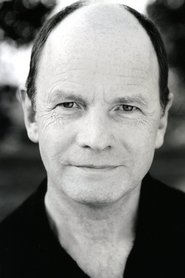 NameSimon ChandlerCharacterJohn Taylor
NameSimon ChandlerCharacterJohn Taylor -
 NameGeorg NikoloffCharacterKhalatnikov
NameGeorg NikoloffCharacterKhalatnikov -
 NameOliver PayneCharacterRobert Hawking (Age 8)
NameOliver PayneCharacterRobert Hawking (Age 8) -
 NameRaffiella ChapmanCharacterLucy Hawking (Age 6)
NameRaffiella ChapmanCharacterLucy Hawking (Age 6) -
 NameSam HoustonCharacterTimothy Hawking (Baby)
NameSam HoustonCharacterTimothy Hawking (Baby) -
 NameVictoria EmslieCharacterSarah (Geneva Student)
NameVictoria EmslieCharacterSarah (Geneva Student) -
 NameFrank LebœufCharacterSwiss Doctor
NameFrank LebœufCharacterSwiss Doctor -
 NameWill BartonCharacterTechnician
NameWill BartonCharacterTechnician -
 NameLucy ChallengerCharacterFemale Fan
NameLucy ChallengerCharacterFemale Fan -
 NameNicola Victoria BuckCharacterCockcroft Guest #2
NameNicola Victoria BuckCharacterCockcroft Guest #2 -
 NameStuart BensonCharacterCockcroft Guest #3
NameStuart BensonCharacterCockcroft Guest #3 -
 NameAndrew BridgmontCharacterCockcroft Guest #5
NameAndrew BridgmontCharacterCockcroft Guest #5 -
 NameJamie EdwardsCharacterCockcroft Guest #4
NameJamie EdwardsCharacterCockcroft Guest #4 -
 NameJumaane BrownCharacterCockcroft Guest #1
NameJumaane BrownCharacterCockcroft Guest #1 -
 NameBecky BushCharacterUndergraduate (uncredited)
NameBecky BushCharacterUndergraduate (uncredited) -
 NameJon WenningtonCharacterJournalist (uncredited)
NameJon WenningtonCharacterJournalist (uncredited) -
 NameCynthia GarbuttCharacterJournalist (uncredited)
NameCynthia GarbuttCharacterJournalist (uncredited)
-
 NameJames MarshJobDirector
NameJames MarshJobDirector -
 NameJóhann JóhannssonJobOriginal Music Composer
NameJóhann JóhannssonJobOriginal Music Composer -
 NameEric FellnerJobProducer
NameEric FellnerJobProducer -
 NameLisa BruceJobProducer
NameLisa BruceJobProducer -
 NameAnthony McCartenJobProducer
NameAnthony McCartenJobProducer -
 NameJinx GodfreyJobEditor
NameJinx GodfreyJobEditor -
 NameJohn Paul KellyJobProduction Design
NameJohn Paul KellyJobProduction Design -
 NameStephen NobleJobCostume Design
NameStephen NobleJobCostume Design -
 NameBenoît DelhommeJobDirector of Photography
NameBenoît DelhommeJobDirector of Photography -
 NameTim BevanJobProducer
NameTim BevanJobProducer -
 NameKevin DayJobProps
NameKevin DayJobProps -
 NameKira KembleJobAssistant Art Director
NameKira KembleJobAssistant Art Director -
 NameGlenn FreemantleJobSupervising Sound Editor
NameGlenn FreemantleJobSupervising Sound Editor -
 NameJill McCulloughJobDialect Coach
NameJill McCulloughJobDialect Coach -
 NameRachel KennedyJobUnit Publicist
NameRachel KennedyJobUnit Publicist -
 NamePat SweeneyJobGaffer
NamePat SweeneyJobGaffer -
 NameNina GoldJobCasting
NameNina GoldJobCasting -
 NameDavid Campbell-BellJobLocation Manager
NameDavid Campbell-BellJobLocation Manager -
 NameAgnes LegereJobHairstylist
NameAgnes LegereJobHairstylist -
 NameMark KeadyJobFirst Assistant Editor
NameMark KeadyJobFirst Assistant Editor -
 NameAllan JenkinsJobMusic Editor
NameAllan JenkinsJobMusic Editor -
 NameGlenn MarksJobStunt Coordinator
NameGlenn MarksJobStunt Coordinator -
 NameNatasha CousinsJobCostume Supervisor
NameNatasha CousinsJobCostume Supervisor -
 NameIan TappJobSound Re-Recording Mixer
NameIan TappJobSound Re-Recording Mixer -
 NameRebecca PearsonJobLocation Manager
NameRebecca PearsonJobLocation Manager -
 NameSylvia ParkerJobScript Supervisor
NameSylvia ParkerJobScript Supervisor -
 NameAdam ScrivenerJobSound Re-Recording Mixer
NameAdam ScrivenerJobSound Re-Recording Mixer -
 NameAmelia GrangerJobExecutive Producer
NameAmelia GrangerJobExecutive Producer -
 NameMark MilsomeJobCamera Operator
NameMark MilsomeJobCamera Operator -
 NameLiam McGillJobRigging Gaffer
NameLiam McGillJobRigging Gaffer -
 NameTheo ParkJobCasting Assistant
NameTheo ParkJobCasting Assistant -
 NameGillian DoddersJobADR Editor
NameGillian DoddersJobADR Editor -
 NameClaire FreemanJobMusic Supervisor
NameClaire FreemanJobMusic Supervisor -
 NameDavid HindleJobSupervising Art Director
NameDavid HindleJobSupervising Art Director -
 NameAgnes LegereJobMakeup Artist
NameAgnes LegereJobMakeup Artist -
 NameJóhann JóhannssonJobOrchestrator
NameJóhann JóhannssonJobOrchestrator -
 NameMark HoltJobSpecial Effects Supervisor
NameMark HoltJobSpecial Effects Supervisor -
 NameLiza ChasinJobExecutive Producer
NameLiza ChasinJobExecutive Producer -
 NameDeborah SabanJobFirst Assistant Director
NameDeborah SabanJobFirst Assistant Director -
 NameGerry VasbenterJobSteadicam Operator
NameGerry VasbenterJobSteadicam Operator -
 NameLucas WebbJobAssociate Producer
NameLucas WebbJobAssociate Producer -
 NameAlison BanksJobUnit Production Manager
NameAlison BanksJobUnit Production Manager -
 NameJane HawkingJobBook
NameJane HawkingJobBook -
 NameDanny FreemantleJobSound Designer
NameDanny FreemantleJobSound Designer -
 NameAlice SuttonJobArt Department Assistant
NameAlice SuttonJobArt Department Assistant -
 NameSarah BridgeJobMusic Supervisor
NameSarah BridgeJobMusic Supervisor -
 NameAnthony WeedenJobOrchestrator
NameAnthony WeedenJobOrchestrator -
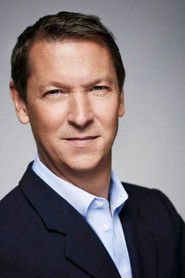 NameDavid KosseJobExecutive Producer
NameDavid KosseJobExecutive Producer -
 NameJan SewellJobMakeup Designer
NameJan SewellJobMakeup Designer -
 NamePaul WrightsonJobADR Editor
NamePaul WrightsonJobADR Editor -
 NameMark KeadyJobAssociate Editor
NameMark KeadyJobAssociate Editor -
 NameGlen GathardJobFoley Editor
NameGlen GathardJobFoley Editor -
 NameJohn WarhurstJobMusic Editor
NameJohn WarhurstJobMusic Editor -
 NameAnthony McCartenJobScreenplay
NameAnthony McCartenJobScreenplay -
 NameJan SewellJobProsthetic Designer
NameJan SewellJobProsthetic Designer -
 NameJan SewellJobHair Designer
NameJan SewellJobHair Designer -
 NameColin NicolsonJobProduction Sound Mixer
NameColin NicolsonJobProduction Sound Mixer -
 NameLauren EvansJobCasting Associate
NameLauren EvansJobCasting Associate -
 NameRichard HewittJobCo-Producer
NameRichard HewittJobCo-Producer -
 NameCraig BarwickJobProduction Accountant
NameCraig BarwickJobProduction Accountant -
 NameLiam DanielJobStill Photographer
NameLiam DanielJobStill Photographer -
 NameLesley SmithJobKey Makeup Artist
NameLesley SmithJobKey Makeup Artist -
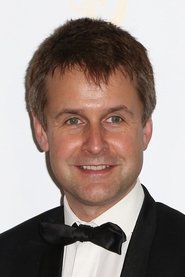 NameRobert SterneJobCasting Assistant
NameRobert SterneJobCasting Assistant -
 NameNicholas FreemantleJobAssistant Sound Editor
NameNicholas FreemantleJobAssistant Sound Editor -
 NameColin GregoryJobBoom Operator
NameColin GregoryJobBoom Operator -
 NameMat CampbellJobGreensman
NameMat CampbellJobGreensman -
 NameInes LiJobVisual Effects Coordinator
NameInes LiJobVisual Effects Coordinator -
 NameBen BarkerJobSound Designer
NameBen BarkerJobSound Designer -
 NameDillon BennettJobSound Effects Editor
NameDillon BennettJobSound Effects Editor -
 NameNoga Alon SteinJobVisual Effects Producer
NameNoga Alon SteinJobVisual Effects Producer -
 NameDerek TriggJobFoley Editor
NameDerek TriggJobFoley Editor -
 NameAnita BurgerJobMakeup Artist
NameAnita BurgerJobMakeup Artist -
 NameMatt CurtisJobTitle Designer
NameMatt CurtisJobTitle Designer -
 NameDean HawleyJobPainter
NameDean HawleyJobPainter -
 NameTim LanningJobGreensman
NameTim LanningJobGreensman -
 NameJim PhilpottJobKey Grip
NameJim PhilpottJobKey Grip -
 NameAlex RouseJobWigmaker
NameAlex RouseJobWigmaker -
 NameEilam HoffmanJobSound Effects Editor
NameEilam HoffmanJobSound Effects Editor -
 NameBruce GordonJobSculptor
NameBruce GordonJobSculptor -
 NameFinola O'BrienJobVisual Effects Coordinator
NameFinola O'BrienJobVisual Effects Coordinator -
 NameCarrie-Ann BannerJobProduction Coordinator
NameCarrie-Ann BannerJobProduction Coordinator -
 NameClaire Nia RichardsJobSet Decoration
NameClaire Nia RichardsJobSet Decoration -
 NameKristyan MallettJobProsthetic Supervisor
NameKristyan MallettJobProsthetic Supervisor -
 NamePaul WrightsonJobDialogue Editor
NamePaul WrightsonJobDialogue Editor -
 NameGillian DoddersJobDialogue Editor
NameGillian DoddersJobDialogue Editor -
 NameDan MaslenJobStoryboard Artist
NameDan MaslenJobStoryboard Artist -
 NameCraig PriceJobProperty Master
NameCraig PriceJobProperty Master -
 NameChris LyonsJobSpecial Effects Makeup Artist
NameChris LyonsJobSpecial Effects Makeup Artist
-
Trailer
-
Trailer
-
Trailer
-
Trailer
-
Trailer
-
Trailer
-
Trailer
-
Trailer
-
Trailer
-
Trailer
-
Trailer
-
Clip
-
Clip
-
Clip
-
Clip
-
Clip
-
Clip
-
Teaser
-
Teaser
-
Teaser
-
Teaser
-
Featurette
-
Featurette
-
Featurette
-
Featurette
-
Featurette
-
Featurette
-
Featurette
-
Featurette
-
Featurette
-
Featurette
-
Featurette
-
Featurette






